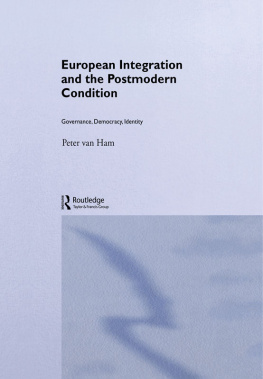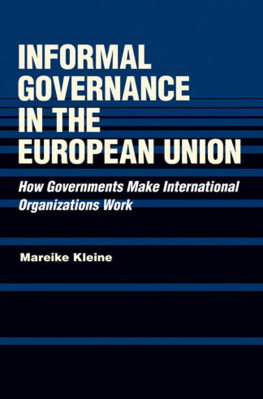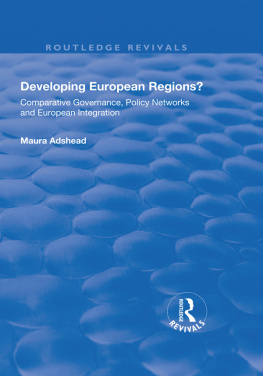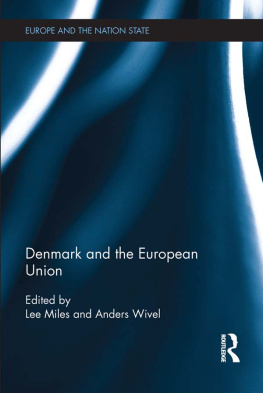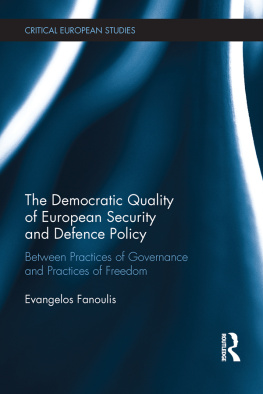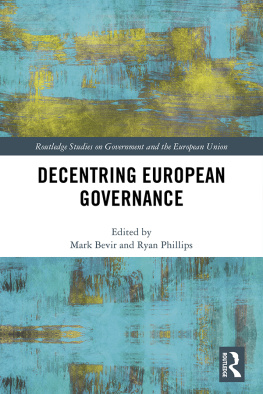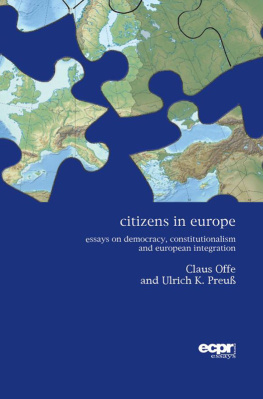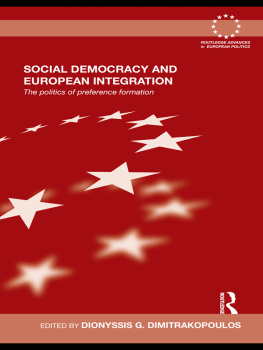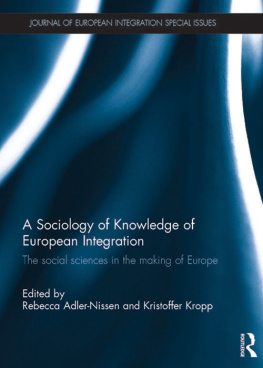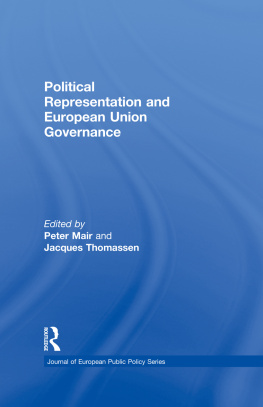Peter Van Ham - European Integration and the Postmodern Condition: Governance, Democracy, Identity
Here you can read online Peter Van Ham - European Integration and the Postmodern Condition: Governance, Democracy, Identity full text of the book (entire story) in english for free. Download pdf and epub, get meaning, cover and reviews about this ebook. year: 2000, publisher: Routledge, genre: Politics. Description of the work, (preface) as well as reviews are available. Best literature library LitArk.com created for fans of good reading and offers a wide selection of genres:
Romance novel
Science fiction
Adventure
Detective
Science
History
Home and family
Prose
Art
Politics
Computer
Non-fiction
Religion
Business
Children
Humor
Choose a favorite category and find really read worthwhile books. Enjoy immersion in the world of imagination, feel the emotions of the characters or learn something new for yourself, make an fascinating discovery.
- Book:European Integration and the Postmodern Condition: Governance, Democracy, Identity
- Author:
- Publisher:Routledge
- Genre:
- Year:2000
- Rating:3 / 5
- Favourites:Add to favourites
- Your mark:
- 60
- 1
- 2
- 3
- 4
- 5
European Integration and the Postmodern Condition: Governance, Democracy, Identity: summary, description and annotation
We offer to read an annotation, description, summary or preface (depends on what the author of the book "European Integration and the Postmodern Condition: Governance, Democracy, Identity" wrote himself). If you haven't found the necessary information about the book — write in the comments, we will try to find it.
Peter Van Ham: author's other books
Who wrote European Integration and the Postmodern Condition: Governance, Democracy, Identity? Find out the surname, the name of the author of the book and a list of all author's works by series.
European Integration and the Postmodern Condition: Governance, Democracy, Identity — read online for free the complete book (whole text) full work
Below is the text of the book, divided by pages. System saving the place of the last page read, allows you to conveniently read the book "European Integration and the Postmodern Condition: Governance, Democracy, Identity" online for free, without having to search again every time where you left off. Put a bookmark, and you can go to the page where you finished reading at any time.
Font size:
Interval:
Bookmark:
Postmodern Condition
Third Rome, revolution, communism and after
Peter J.S. Duncan
Governance, democracy, identity
Peter van Ham
and the Postmodern
Condition

by Routledge
2 Park Square, Milton Park, Abingdon, Oxon OX14 4RN
by Routledge
270 Madison Ave, New York, NY 10016
A catalogue record for this book is available from the British Library
Ham, Peter van, 1963
European integration and the postmodern condition: governance,
democracy, identity
Includes bibliographical references and index.
1. European Union. 2. PostmodernismPolitical aspects. 3. Globalization.
4. Democracy I. Title. II. Series.
JN30.H35 2001
341.242'2dc21 00062728
Font size:
Interval:
Bookmark:
Similar books «European Integration and the Postmodern Condition: Governance, Democracy, Identity»
Look at similar books to European Integration and the Postmodern Condition: Governance, Democracy, Identity. We have selected literature similar in name and meaning in the hope of providing readers with more options to find new, interesting, not yet read works.
Discussion, reviews of the book European Integration and the Postmodern Condition: Governance, Democracy, Identity and just readers' own opinions. Leave your comments, write what you think about the work, its meaning or the main characters. Specify what exactly you liked and what you didn't like, and why you think so.

